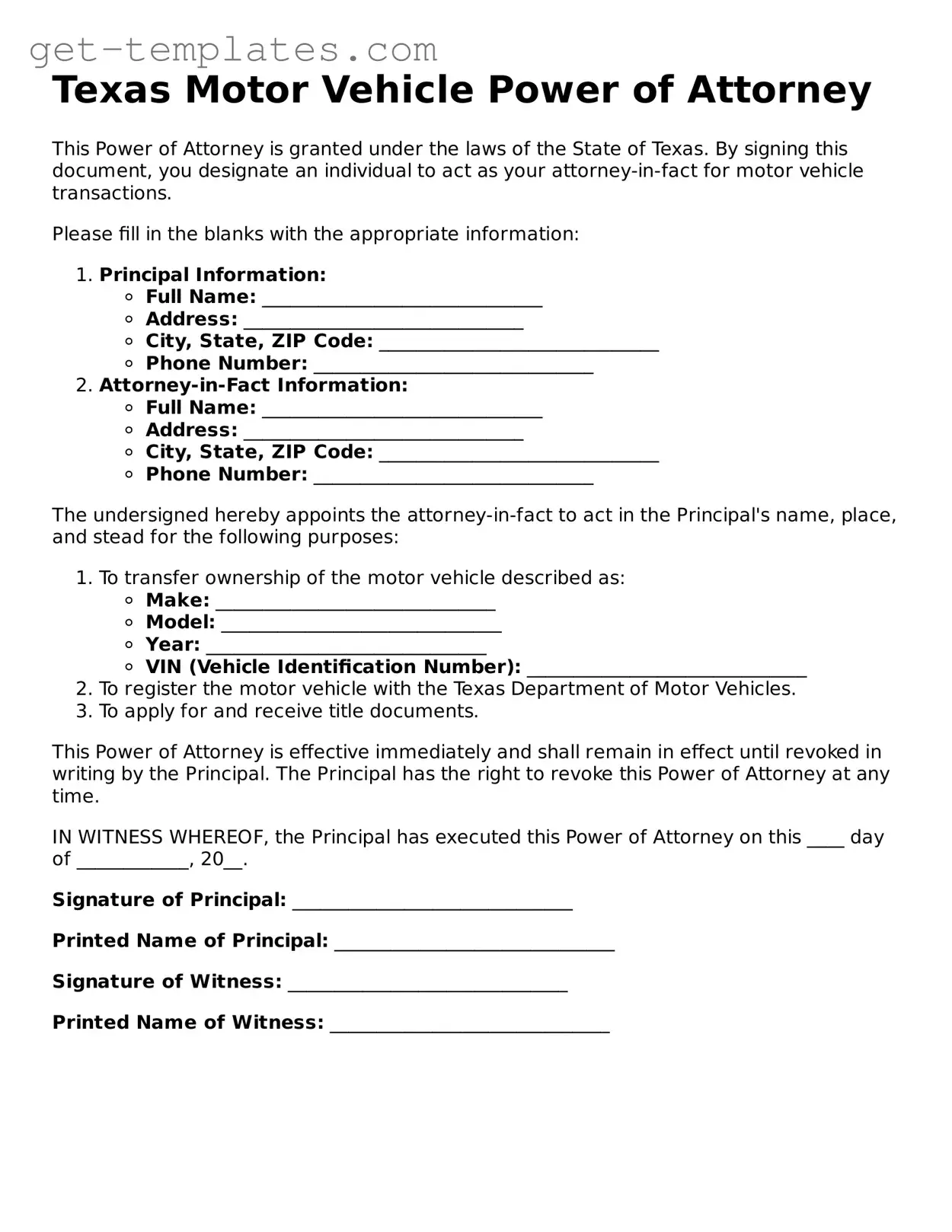Attorney-Approved Motor Vehicle Power of Attorney Document for Texas
The Texas Motor Vehicle Power of Attorney form is a legal document that allows an individual to designate another person to act on their behalf regarding motor vehicle transactions. This form is essential for facilitating tasks such as title transfers, registration renewals, and other related activities. Understanding its use can simplify the process of managing vehicle-related matters in Texas.
Get Document Online

Attorney-Approved Motor Vehicle Power of Attorney Document for Texas
Get Document Online
You’re halfway through — finish the form
Finish Motor Vehicle Power of Attorney online — edit, save, download made easy.
Get Document Online
or
⇓ PDF Form
